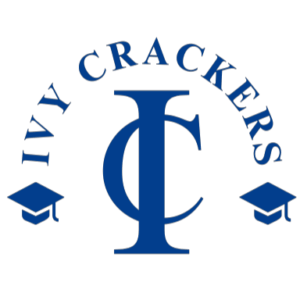How to Write Winning Essays for Judge Business School, Cambridge Univeristy
Essay 1: Please provide details of your post-MBA career plans. The statement should not exceed 500 words and must address the following:
- What are your short- and long-term career objectives? How will the Cambridge MBA equip you to achieve these?
- Looking at your short-term career goal, describe the research you have done to understand how this industry/role/location recruits MBA talent and what they are looking for in a candidate?
- How confident do you feel about meeting your short-term career goal? What skills/characteristics do you already have that will help you to achieve them, and what preparation are you doing now?
Applying to Judge Business School at Cambridge University requires a well-thought-out essay that addresses your post-MBA career plans within 500 words. This essay is your opportunity to demonstrate how the Cambridge MBA will help you achieve your career goals and to show that you have thoroughly researched your intended career path. Here’s a strategy to help you craft a compelling and focused essay:
1) Define Your Short- and Long-Term Career Objectives
- Short-Term Goals: Begin by clearly articulating your career aspirations. Your short-term goals should be specific and achievable within the first few years post-MBA. You must ensure that your goals are achievable given your background, skills, and the opportunities available post-MBA. Consider the typical career trajectories in your desired field and the qualifications required. For example, instead of saying you want to “work in finance,” specify that you aim to “get into investment banking at a leading financial institution.”
- Long-Term Goals: Long-term career objectives are the overarching ambitions you aspire to achieve over an extended period, typically 5-10 years post-MBA. These goals should reflect your broader vision and personal aspirations. Your long-term goals should be ambitious yet attainable. They should stretch your abilities and require you to grow and develop continually. For example, “To become a business leader at a top-tier investment bank, leading a team of finance professionals and driving significant financial growth and innovation.”
2) Link Your Goals to the Cambridge MBA: Explain how the Cambridge MBA program specifically aligns with and supports your career objectives.
- Course Offerings: Identify specific courses or modules that align with your career goals. For example, if your short-term goal is to work in investment banking, mention relevant finance courses such as “Corporate Finance” or “Financial Markets.” You must highlight any specializations or tracks that are pertinent to your objectives. If you aim to work in technology management, mention the “Technology and Innovation” track. For example, “The Cambridge MBA’s robust finance curriculum, particularly the ‘Corporate Finance’ and ‘Financial Markets’ courses, will provide me with the advanced knowledge and analytical skills necessary to excel at investment banking.”
- Faculty: Emphasize how learning from these experts will provide you with insights and guidance that are directly relevant to your career aspirations. You should also discuss the potential for building mentoring relationships with faculty members who have expertise in your field of interest. For example, “Learning from Professor X, an authority in corporate finance, will be invaluable as I seek to deepen my expertise in investment banking.”
- Global Network: Highlight how access to the Cambridge alumni network can open doors to opportunities and provide you with mentorship and guidance. You must mention specific partnerships or connections the school has with leading companies in your industry of interest. For example, “The global alumni network of Cambridge Judge Business School will connect me with influential professionals in the finance industry, offering mentorship and career opportunities that are crucial for my progression.”
3) Highlight How You Meet the Requirements: Identify the key skills required for your target role and demonstrate how you possess them. Use specific examples to illustrate your proficiency.
- Technical Skills: You must mention any technical skills that are crucial for your career goal, such as financial modeling, data analysis, or proficiency in relevant software.
- Work Experience: You should detail any professional experiences that are directly relevant to your short-term career goal. Highlight specific roles, responsibilities, and achievements.
- Accomplishments: You must discuss specific accomplishments that showcase your readiness for the short-term career goal. These can include successful projects, awards, or recognitions.
- Courses/Certifications: You can highlight any additional courses, certifications, or training programs you are pursuing to strengthen your expertise. For example, “I am currently enrolled in the CFA program and have successfully passed Level I. This certification will further solidify my expertise in investment analysis and portfolio management.”
4) Conclusion: Wrap up your essay by reinforcing your commitment to your career goals and your enthusiasm for the Cambridge MBA. Reiterate how the program will be instrumental in your journey and express your readiness to contribute to the Judge Business School community.

Essay 2: Tell us about a time when you made a professional mistake. How could it have ended differently? (up to 200 words)
The essay prompt from Judge Business School at Cambridge University asks you to reflect on a time when you made a professional mistake and how it could have ended differently. This essay, limited to 200 words, is a critical opportunity to demonstrate your self-awareness, learning capacity, and ability to handle adversity. Here’s a strategy to help you craft a thoughtful and impactful response:
1) Choose a Relevant and Meaningful Mistake: When selecting a professional mistake to discuss, it’s crucial to choose one that is relevant, significant, and offers valuable insights. Here’s how to approach this:
- Select a Professional Mistake with Significant Consequences: Choose a mistake that had noticeable consequences on your work, team, or organization. This will show that you have faced real challenges and learned from them. For example. “One significant mistake I made was underestimating the complexity of a major project timeline. I was leading a team tasked with implementing a new software system, and I set an overly ambitious deadline without fully assessing all the variables and potential obstacles.
- Avoid Mistakes That Reflect Poorly on Your Character: Choose a mistake that shows you in a positive light despite the error. Avoid mistakes that might suggest a lack of integrity, responsibility, or professionalism.
2) Describe the Context and Your Role:
- Set the Scene: Start by providing a brief overview of the situation. Describe the project or task you were involved in, the objectives, and the environment in which it took place. This will help the reader understand the significance of the mistake.
- Explain Your Role: Clearly outline your responsibilities and position within the team or organization. This helps the reader grasp your level of involvement and the importance of your role in the context of the mistake.
- Highlight the Significance: Emphasize the significance of the project or task to convey why the mistake was impactful. This helps the reader understand the stakes and the potential repercussions of the error. For example, “The ERP implementation was a high-stakes project with a tight deadline, as the company was preparing for a major merger. Successful execution was critical to ensure a smooth transition and integration of operations across both organizations.”
- Contextualize the Mistake: Briefly describe the context in which the mistake occurred. Explain any relevant factors or challenges that contributed to the error, without making excuses.
3) Reflect on the Consequences:
- Immediate Impact on the Project: Start by detailing the immediate effects of your mistake on the project. This includes any disruptions, delays, or setbacks that occurred as a direct result.
- Effect on the Team: Explain how your mistake affected your team members. Discuss any additional stress, increased workload, or other challenges they faced because of the error. For example, “The team had to work overtime to troubleshoot and resolve the issues, which caused significant stress and fatigue. The morale of the team was affected as they had to address problems that could have been prevented with better planning.”
- Impact on Stakeholders: Describe how the mistake impacted stakeholders, such as clients, senior management, or other departments within the organization. Highlight the importance of these stakeholders to emphasize the seriousness of the consequences.
- Quantify the Consequences (if possible): If applicable, quantify the consequences to provide a clearer picture of the mistake’s impact. This could include financial costs, time lost, or other measurable effects. For example, “The project delay resulted in an additional cost of $50,000 due to the need for extra resources and overtime pay. The disruptions also led to a temporary decline in productivity, affecting the company’s overall performance for that quarter.”
4) Focus on Learning Experiences:
- Acknowledge Key Lessons: Emphasize what you learned from the experience and how it has positively impacted your approach to work and problem-solving. For example, “By underestimating the project timeline, I learned the importance of thorough planning and realistic time management. I now always conduct comprehensive risk assessments and include buffer periods in project schedules to account for unforeseen challenges.”
- Explain How You Applied These Lessons: Detail how you have applied these lessons in your subsequent professional experiences. Show that you have taken concrete steps to improve your performance and avoid making similar mistakes in the future.
- Highlight Professional Growth: Discuss how this experience contributed to your overall professional growth. Emphasize any new skills or perspectives you gained and how they have enhanced your capabilities.
- Show a Commitment to Continuous Learning: Demonstrate that you are committed to continuous learning and self-improvement. Discuss any additional steps you have taken to further enhance your skills and knowledge. For example, “I have also pursued additional training and certifications in project management, including earning my PMP certification. This commitment to continuous learning ensures that I am always improving and staying updated with the latest best practices in the field.”
5) Conclude with a Positive Note: Wrap up your essay by briefly reiterating how the experience has made you a better professional. Emphasize your commitment to continuous improvement and learning.
Essay 3: Tell us about the best team you worked with. What made the team successful?
This essay prompt is asking you to describe the best team you’ve worked with and what made the team successful. With a 200-word limit, this essay requires a focused and concise response. Here’s a strategy to help you effectively convey your experience and insights:
1) Select a Meaningful Team Experience: Choose a team experience that had a substantial impact on you, your team, and the overall outcome of the project or task. This should be an experience where your contributions and the dynamics of the team were crucial to success. For example, “One of the most significant team experiences I had was leading a cross-functional team to develop a new product line for our company. The project required collaboration between marketing, engineering, and sales departments to ensure a successful launch.”
2) Provide Context and Your Role:
- Describe the Project: Begin by providing a concise overview of the project or initiative that your team was tasked with. Explain the purpose of the project and its significance within the organization or industry.
- Explain Your Role Within the Team: Clearly outline your specific role and responsibilities within the team. This helps the reader understand your level of involvement and contribution to the project. For example, “As the project manager for the CRM implementation, my responsibilities included overseeing the project timeline, coordinating with IT and department heads, managing stakeholder expectations, and ensuring that the system met our business requirements.”
- Set the Stage: Provide additional context that helps set the stage for the team experience. This may include the project’s goals, challenges faced, and any specific milestones or deadlines.
3) Highlight Key Factors of Success: Identify and explain the factors that contributed to the team’s success. Focus on specific elements like communication, diverse skill sets, mutual respect, and effective leadership. For example, “The team’s success was driven by open communication, diverse expertise, and a shared vision. Regular cross-departmental meetings ensured everyone was aligned, while each team member’s unique skills contributed to innovative solutions.”
4) Conclude with the Impact: Wrap up your essay by briefly mentioning the impact of the team’s success and how the experience influenced you. For example, “The successful launch resulted in a 20% increase in market share within six months. This experience reinforced the importance of teamwork and collaboration, shaping my approach to future projects.”
Essay 4: Provide an example of when someone else positively impacted your life. What did you learn from this experience?
The essay prompt from Judge Business School at Cambridge University asks you to provide an example of when someone else positively impacted your life and what you learned from the experience. With a 200-word limit, it’s important to be clear and concise. Here’s a strategy to help you effectively convey your story and insights:
1) Choose a Significant Example: Select a specific example where someone’s actions or influence had a profound impact on your life. This could involve a mentor, a friend, a family member, or anyone who played a significant role in your personal growth or shifted your perspective. For example, “A mentor at your first job who helped you navigate career challenges and build confidence.”
2) Describe the Person and Context:
- Introduce the Person: Begin by briefly introducing the individual who made a meaningful impact on your life. Provide their name(optional), relationship to you, and their role or significance in the context of the experience.
- Provide Background Context: Set the stage by describing the context of your interaction with this person. Explain where and when you met them, and the circumstances that led to their impact on your life.
- Explain Their Role or Influence: Detail the person’s role or how they influenced you during your interaction. Discuss why their impact was significant and how it affected you personally or professionally.
3) Explain the Positive Impact:
- Detail Specific Actions or Support: Describe specific actions, advice, or support that the person provided, which had a positive impact on your life. Highlight moments or instances where their influence was particularly meaningful.
- Discuss the Significance of Their Actions: Explain why the person’s actions or support were significant to you. Discuss how their guidance or encouragement resonated with your goals, aspirations, or personal growth.
- Highlight Advice or Wisdom Shared: Share specific advice or wisdom that the person imparted to you. Discuss how this advice influenced your decisions or shaped your perspective on important aspects of life or career.
- Explain How It Made a Difference: Detail how the person’s actions, advice, or support made a tangible difference in your life. Discuss any changes in mindset, behavior, or achievements that resulted from their positive influence.
4) Reflect on What You Learned:
- Identify Key Lessons Learned: Discuss the specific lessons you learned from your interaction with this person. Reflect on insights gained, skills acquired, or changes in mindset that resulted from their influence.
- Discuss Personal Growth: Emphasize how this person’s impact contributed to your personal growth. Describe any changes in self-awareness, confidence, or resilience that you attribute to their mentorship or support.
- Highlight Professional Development: Explain how this person’s influence facilitated your professional development. Discuss any skills, knowledge, or insights gained that have been instrumental in your career path or aspirations.
- Discuss Shifts in Perspective: Reflect on any shifts in perspective or mindset that occurred as a result of your interaction with this person. Explain how their insights or advice challenged your thinking or broadened your understanding of a particular subject or issue.
5) Conclude with a Lasting Impact: Wrap up your essay by mentioning the lasting impact of this experience and how it continues to influence you today.
How can IvyCrackers help you?
When it comes to making informed decisions about an MBA/MS/STEM program, there is often no substitute for firsthand knowledge and advice from those who have been through similar experiences. That’s why we, at IvyCrackers, firmly believe that one of the best ways to gain valuable insights about a particular MBA/MS/STEM program or university is to interact with current students and alumni of that very university
Connecting with them can give you a more comprehensive understanding of what it is be part of that university, both in terms of coursework and extracurricular activities, as well as the kind of career options that may be available after graduation. Our “Mentor Session” initiative is designed to help facilitate these connections by pairing you with members of our community who can share their personal experiences and perspectives with you.

Our team of mentors, at IvyCrackers, has been passionately dedicated to helping countless candidates achieve their academic and professional goals. We have worked tirelessly to provide comprehensive services that are tailored to your specific needs, including refining your application essays, conducting mock interviews, perfecting your resumes, and strengthening your profiles. Our commitment to excellence is reflected in the success stories we have helped create, with our clients consistently achieving remarkable feats in their chosen fields.
We believe that everyone has the potential to excel, and we are here to help you unlock that potential. So why not head over to our ‘Mentors’ section now and discover how we can help you fulfill your dreams today?
Visit our Youtube Channel, Linkedin or Instagram Page for regular updates!


